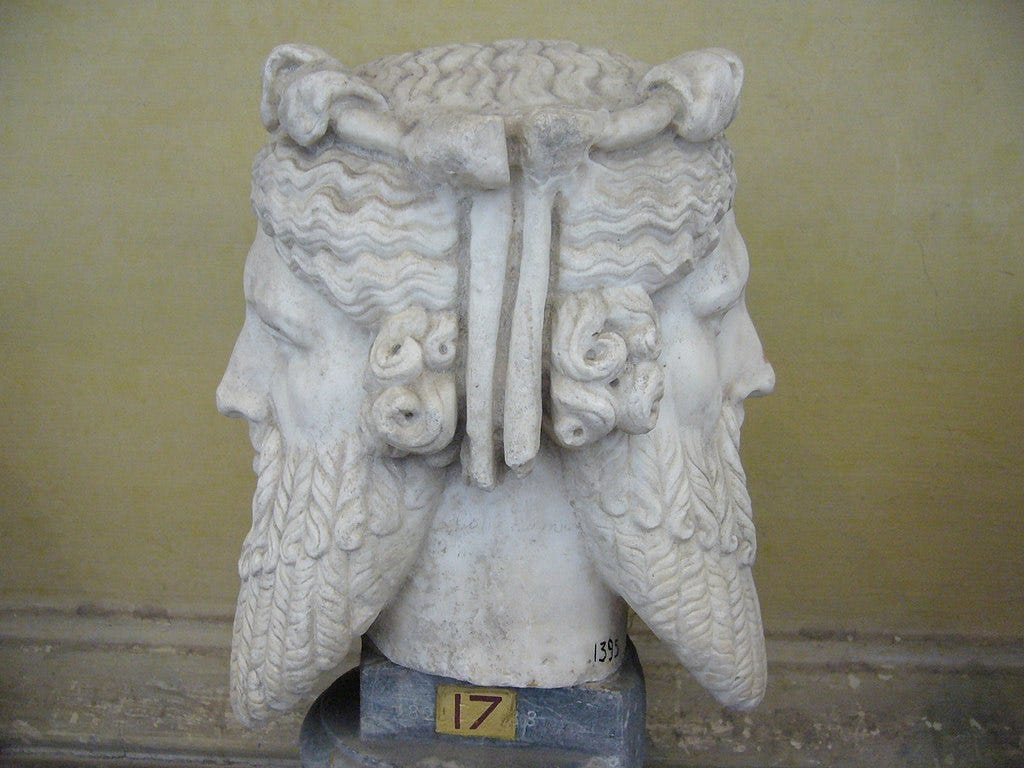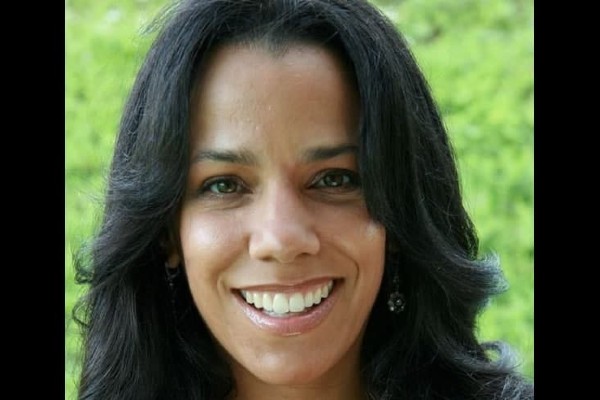 Amerykańscy żołnierze w Afganistanie Fot. Wikipedia
Amerykańscy żołnierze w Afganistanie Fot. Wikipedia
 Wolność wymaga cierpliwości
Wolność wymaga cierpliwości
RABIN JONATHAN SACKS
SZLACH – 17 CZERWCA 2017/23 SIWAN 5777
Czyim pomysłem było posłanie szpiegów?
Według parszy na ten tydzień – był to pomysł Boga.
„I oświadczył Wiekuisty Mojżeszowi, i rzekł: Wyszlij sobie mężów, aby wypatrzyli ziemię Kanaan, którą oddaję synom Israela, – po jednym mężu z każdego pokolenia ojców ich poszlecie; wszystkich z dostojniejszych między nimi. I wysłał ich Mojżesz z puszczy Paran […]” (Be-midbar 13:1-3).
Według słów Mojżesza, zapisanych w księdze Dwarim, zdecydowali o tym ludzie:
„Tedyście przystąpili do mnie wszyscy, a rzekli: »Wyszlijmy ludzi przed sobą, aby zbadali nam tę ziemię, i zdali nam sprawę o drodze, po której wnijść mamy, i o miastach, do których wejdziemy!«. I okazało się to dobrem w oczach moich; i wziąłem z was dwunastu mężów, po mężu jednym z każdego pokolenia” (Dwarim 1:22-23).
Raszi godzi te dwie sprzeczności. Twierdzi, że Mojżesz zapytał Boga, co robić, po tym, gdy ludzie przyszli do niego z propozycją wysłania szpiegów. Bóg na to zezwolił – nie nakazał tego, a jedynie nie zakazał. „Gdy człowiek obiera kierunek, tam będzie wiedziony” (Makot 10b), jak mówili rabini. Co to oznacza? Bóg nie powstrzymuje ludzi przed dążeniem do obranego celu wybraną ścieżką, nawet kiedy wie, że droga ta prowadzi do tragedii. Oto natura wolności, którą obdarzył nas Bóg – wolność popełniania błędów.
Majmonides („Przewodnik błądzących III”, rozdział 32) przedstawia interpretację, która pozwala spojrzeć inaczej na tę sprawę. Zaczyna od zwrócenia uwagi na wers 17 z rozdziału 113, z którym rozpoczyna się exodus. Bóg nie prowadzi uwolnionego w końcu przez faraona ludu przez ziemię Filistynów, mimo że ta droga byłaby krótsza. Wiedzie go okrężną drogą przez pustynię do Morza Sitowego. Mówi: „[…] »By nie pożałował lud, gdy zobaczy wojnę, a nie powrócił do Micraim«” (Be-midbar 13:17).
Majmonides komentuje: „I tak poprowadził Bóg lud okrężną drogą, z dala od prostego szlaku, który wcześniej miał w planach, bo obawiał się, że doświadczyć może lud ten trudów, zbyt wielkich i ponad swoje siły. Poprowadził ich więc Bóg inną drogą, aby dokonać tego, co sobie wcześniej zamierzył”. Następnie dodaje: „Jest rzeczą oczywistą, że podróż przez pustkowie, pozbawiona komfortu, jakim jest, na przykład, kąpiel, buduje odwagę. Komfort prowadzi do bojaźliwości i tchórzostwa. Poza tym czas wędrówki dał możliwość wzrastania nowego pokolenia z dala od warunków niewoli i poniżenia”. Według Majmonidesa nie było zatem istotne, kto wysłał szpiegów. Nie była też ważna kara jako taka – a więc decyzja, że lud skazany będzie na czterdziestoletnią wędrówkę przez pustynię i że tylko najmłodszemu pokoleniu dane będzie wejść do Ziemi Obiecanej. Wszystko, co się wydarzyło, było nieuniknioną konsekwencją wynikającą z ludzkiej natury.
Nie wystarczy kilka dni czy tygodni, żeby zmienić naród niewolników w społeczeństwo, które zdoła udźwignąć odpowiedzialność autonomii. Izraelici potrzebowali pokolenia ludzi urodzonych w świadomości wolności, ugruntowanej przez doświadczenie pustyni, nieskrępowanych niewolniczymi nawykami. Nie ma drogi na skróty. Wolność wymaga czasu. Najczęściej, w istocie, bardzo długiego czasu.
Opisywany tu wymiar czasu jest rzeczą fundamentalną w żydowskim rozumieniu polityki i rozwoju ludzkości. Właśnie dlatego w Torze Mojżesz wielokrotnie powtarza starszemu pokoleniu, aby uczyło dzieci, opowiadało historie z przeszłości, pielęgnowało pamięć. Dlatego samo przymierze rozciągnięte jest w czasie – przekazywane jest z pokolenia na pokolenie. Z tego też powodu historia Izraelitów opowiedziana w Tanachu rozciąga się. Opowieść z Biblii hebrajskiej toczy się przez tysiąc lat, od czasów Mojżesza do ostatnich proroków. Bóg dokonuje swego dzieła nie w jednym momencie historii, ale w jej całej rozpiętości. Inaczej niż w chrześcijaństwie czy islamie, nie ma jednego momentu w judaizmie, w którym dokonuje się transformacja kondycji ludzkiej, nie ma krótkiego okresu, ani nawet pojedynczego pokolenia, w którym wszystko, co najistotniejsze, nagle zostaje w całości wyjawione. Dlaczego, pyta Majmonides w „Przewodniku błądzących” (III, r. 32), Bóg nie uczynił po prostu Izraelitów na tyle silnymi, aby przekroczyli rzekę Jordan i wstąpili do Ziemi Obiecanej? Ponieważ, odpowiada, oznaczałoby to pożegnanie się z ludzką wolnością, prawem wyboru i odpowiedzialnością. Nawet Bóg, twierdzi Majmonides, musi pielęgnować ziarno ludzkości, jej ewolucja to proces bardzo czasochłonny. Nie jest więc tak, że Bóg nie może zmieniać ludzi. Oczywiście, może. On ich stworzył i On mógłby dokonać ich przemiany. Jednak decyduje się tego nie robić, wycofuje się, ograniczając swoje działanie – dokonuje tego, co w kabale luriańskiej nazwane zostało cimcum. Chce, aby ludzie stworzyli społeczeństwo wolności, a jakże mieliby tego dokonać, jeśli Bóg sam by ich tej wolności pozbawił. Niczym rodzic, który musi powstrzymać się od robienia pewnych rzeczy dla swojego dziecka, jeśli chce, aby weszło w dorosłość, tak i Bóg musi ograniczyć swój wkład w rozwój ludzkości, jeśli chce, aby jego lud osiągnął moralną i polityczną dojrzałość.
W jednej z moich książek nazywam ten fenomen wyobraźnią chronologiczną, w opozycji do greckiej wyobraźni logicznej. W logice brakuje bowiem wymiaru czasowego. Dlatego też filozofowie mają skłonność do bycia albo skrajnie konserwatywnymi (Platon w swym państwie nie chciał poetów, ponieważ ich obecność groziła zakłócaniem porządku publicznego), albo głęboko rewolucyjnymi, jak Rousseau czy Marks. Dzisiejszy porządek społeczny może być albo dobry, albo zły. Jeśli jest właściwy, nie powinniśmy go zmieniać, a kiedy zawodzi, powinien zostać obalony. Fakt, że zmiana wymaga czasu, czasami nawet kilku pokoleń, to idea, którą trudno wpasować w myśl filozoficzną – nawet filozofowie, jak Hegel czy Marks, którzy analizowali czynnik czasu, robili to odruchowo, przy okazji, mówiąc o „nieuchronności dziejowej”, nie biorąc jednak pod uwagę, że czas może być niespodziewanym sprawdzianem wolności.
Jedną z bardziej osobliwych cech zachodniej cywilizacji jest fakt, że przez ostatnie stulecia ludzie, którzy bronili tradycji, jak Edmund Burke, Michael Oakshott czy T. S. Eliot, byli mocno konserwatywni i chcieli utrzymania status quo. Nie ma jednak powodu, dla którego tradycja z góry musiałaby być konserwatywna. Możemy przekazywać dzieciom nie tylko historię naszej przeszłości, ale również plany i ideały, których nie udało nam się zrealizować. Możemy pragnąć, żeby wzniosły się wyżej, niż nam się udało, by zawędrowały dalej na drodze wolności, niż my zdołaliśmy zawędrować. Przykładem takiego podejścia jest wypowiadane na rozpoczęcie sederu pesachowego zdanie: „W tym roku w niewoli, w przyszłym na wolności; w tym roku tutaj, w przyszłym w Izraelu”. Tradycja może ulegać ewolucji bez wywoływania rewolucji.
Oto lekcja z historii o szpiegach: mimo gniewu Wszechmocnego, Jego lud nie został skazany na wieczne wygnanie, musiał jednak pogodzić się z faktem, że nie będzie mu dane osiągnąć tego, na co gotowe było dopiero najmłodsze pokolenie.
Dziś często zapominamy o tej lekcji. Działania wojenne w Afganistanie i Iraku zostały podjęte, przynajmniej częściowo, w imię demokracji i wolności. Szerzenie tych wartości nie jest jednak zadaniem wojny, ale edukacji i instytucji prospołecznych, jest konsekwencją powolnego procesu akceptowania odpowiedzialności. Na to potrzeba pokoleń, a czasami i po długim czasie zmiana jest niezauważalna. Ludzie – niczym Izraelici zniechęceni raportem szpiegów – z natury skłonni są do tracenia wiary i chcą powrotu do przewidywalnej przeszłości („Ustanówmy sobie wodza, i wróćmy do Micraim” [Be-midbar 14:4]), zamiast skłaniać się ku nieznanej przyszłości, wymagającej i pełnej niebezpieczeństw. Dlatego też w historii odnajdujemy więcej przykładów rządów tyranów niż demokracji.
Polityka wolności wymaga cierpliwości, wieloletnich starań i podtrzymywania nadziei. Emmanuel Levinas mówił o „trudnej wolności”, ale wolność nigdy nie jest łatwa. Historia o szpiegach uczy nas, że pokolenie, które wyszło z Egiptu, nie było jeszcze gotowe na tę wolność. Ich sytuacja była tragiczna. Jednak ich dzieci miały ją w przyszłości osiągnąć i to było pociechą Izraelitów.
Tłumaczenie: Jolanta Różyło © CHIDUSZ 2017
Zawartość publikowanych artykułów i materiałów nie reprezentuje poglądów ani opinii Reunion’68,
ani też webmastera Blogu Reunion’68, chyba ze jest to wyraźnie zaznaczone.
Twoje uwagi, linki, własne artykuły lub wiadomości prześlij na adres:
webmaster@reunion68.com




 recommended by: Leon Rozenbaum
recommended by: Leon Rozenbaum
